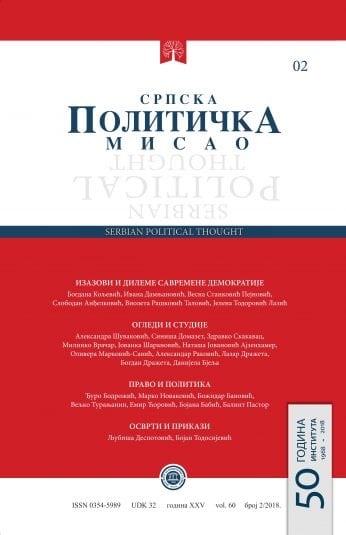Институционални капацитети Србије у решавању проблема деце са сметњама у развоју
Institutional Capacities of Serbia in Resolving the Problem of Children With Disabilities
Author(s): Jadranka Otašević, Nada Dobrota DavidovićSubject(s): Health and medicine and law, Welfare services, Inclusive Education / Inclusion
Published by: Институт за политичке студије
Keywords: institutions; health policy; social policy; education; children with disabilities
Summary/Abstract: The behavior of society towards children depends of the way in which society understands childʼs development and learning. The dif ferences in the understanding of the child, his development and learn ing are conditioned by culture, tradition and the needs of society and inbuilt system of values. The birth of a baby with a disability or finding out that a child suffers from a disability can be traumatic event for par ents and can have profound effects on the entire family. The parents of disabled children need more inner strength than other parents, not just to deal with the particular difficulties that inevitably arise in caring for the disabled, but also to cope with the challenges of everyday life. The child should grow up in a family environment, in an atmosphere of happiness, love and understanding. Parents are responsible for the well-being of their children, and the state must support parents in exer cising their responsibilities. Everyday life of children with disability is rife with many limitations such as architectural, transport, information as well as medical, psychological, legal, economic and social barriers. The attitude and distrust of the environment towards children and peo ple with disabilities is the most significant source of problems for most of this population, and this is the barrier that is most difficult to over come, even in societies where the protection of children and youth with disabilities is very developed. In order to keep a proper policy in terms of providing an institutional base and staff to work with children with disabilities, it is necessary to record these children and integrate the ob tained information at the national level. This would enable the precise planning of the scope and structure of the program, secondary and ter tiary prevention in the context of health, educational and social welfare institutions, while insight into the presence of interference allow wider planning mental-health and cultural measures to improve the quality of life of these children.
Journal: Српска политичка мисао
- Issue Year: 2018
- Issue No: 3
- Page Range: 157-173
- Page Count: 17
- Language: Serbian

